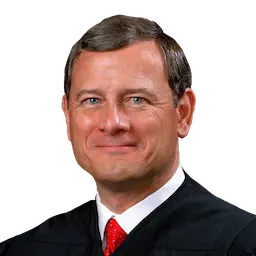
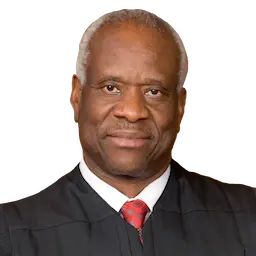
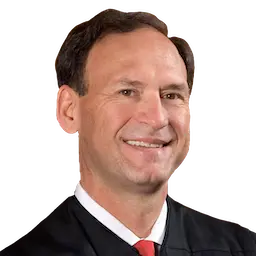
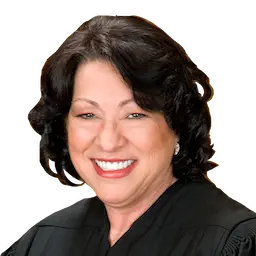

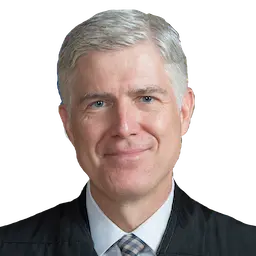
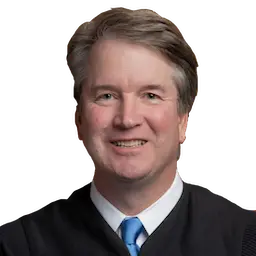
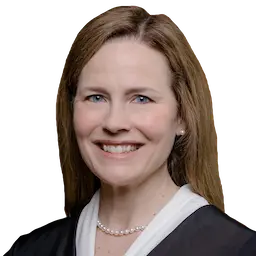
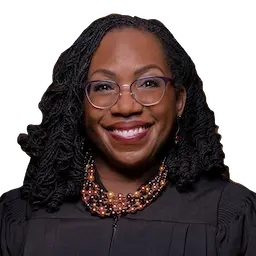
ProPublica is a nonprofit newsroom that investigates abuses of power. Sign up to receive our biggest stories as soon as they’re published.
Last summer, the U.S. Supreme Court overturned the constitutional right to abortion established 50 years ago in Roe v. Wade, raising concerns about the future of other rights rooted in Supreme Court rulings. Although most rights are secured by statutes and regulations, others are guarantees extrapolated by the court from the often abstract language of the Constitution. Some of these are recent rights, like the right to carry a handgun in public. But many are longstanding, like the right to be read a Miranda warning by police before being interrogated, and trace their origins to the liberal majorities that presided on the court from the 1950s through the 1970s, an era often called the “rights revolution.” Because these rights were established by the court, the court alone gets to decide whether to preserve, shrink or unmake them.
To get a better sense of which rights may be at risk — in whole or in part — ProPublica scoured judicial opinions, academic articles and public remarks by sitting justices. Some justices, like Clarence Thomas, have had decadeslong careers and lengthy paper trails. By contrast, Ketanji Brown Jackson, the newest justice, has almost no prior record. We found dozens of rights that at least one sitting justice has questioned. Below, you can explore these rights and the objections levied against them. We include federal legislation that’s been introduced to protect a given right, as well as lawsuits active in lower courts that could become vehicles for the justices to revisit existing rights in the future.









With four or more justices questioning aspects of these rights, they’re the likeliest to be undone by the conservative bloc.
Between 1971 and 1980, the Supreme Court read into the Constitution an implicit right to sue federal officials for damages over violations of certain constitutional rights, which came to be called a Bivens claim. The court only ever sanctioned three Bivens claims: a Fourth Amendment lawsuit over the conduct of federal agents during an arrest, an employment lawsuit brought by a congressional staffer alleging gender discrimination and a case brought by a federal prisoner alleging inadequate care under the Eighth Amendment. Key Cases: Bivens v. Six Unknown Named Agents of Federal Bureau of Narcotics (1971), Davis v. Passman (1979), Carlson v. Green (1980)

Roberts

Thomas

Alito



Gorsuch

Kavanaugh

Barrett

In a 2022 majority opinion, Justice Thomas disparaged Bivens but stopped short of overruling it. The court didn’t reject the three types of Bivens claims it had approved but, Thomas wrote, the court would not recognize new types of Bivens claims. Chief Justice Roberts and Justices Alito, Kavanaugh and Barrett joined the opinion. In a separate opinion, the court’s sixth conservative, Justice Gorsuch, argued for overruling Bivens outright, something he and Justice Thomas had advocated for in a concurring opinion two years earlier.
| Bill No. | Name | Introduced | Last Action | Status |
|---|---|---|---|---|
| H.R.6185 | Bivens Act of 2021 To provide a civil remedy for an individual whose rights have been violated by a person acting under Federal authority, and for other purposes. | Dec. 8, 2021 | Nov. 1, 2022 | Referred to the Subcommittee on the Constitution, Civil Rights, and Civil Liberties. |
| S.3343 | Bivens Act of 2021 A bill to provide a civil remedy for an individual whose rights have been violated by a person acting under Federal authority, and for other purposes. | Dec. 8, 2021 | Dec. 8, 2021 | Read twice and referred to the Committee on the Judiciary. |
| Case | Court | Docket No. | Filed |
|---|---|---|---|
| Jeremy Graber v. Michael Boresky | Court of Appeals for the Third Circuit | 21-1407 | March 4, 2021 |
The Miranda warning, familiar to fans of police procedurals, is the product of the 1966 decision Miranda v. Arizona. To protect the Fifth Amendment’s right against self-incrimination, the Supreme Court held that, before they begin an interrogation, law enforcement officials must inform suspects that they have the right to remain silent and to have an attorney present. Key Cases: Miranda v. Arizona (1966)

Roberts

Thomas

Alito



Gorsuch

Kavanaugh

Barrett

Miranda has been a subject of frequent criticism from members of the court’s conservative bloc as an example of judicial activism. Justice Thomas joined a 2000 dissent that called for it to be overturned. As a law professor, Justice Barrett decried Miranda in her academic writing as extraconstitutional and an abuse of judicial power. In a 2017 speech, Justice Kavanaugh, then still an appeals court judge, praised efforts to narrow Miranda’s scope. In a 2022 opinion that all but eliminated the ability to sue police over violations of Miranda, Justice Samuel Alito — joined by the court’s five other conservatives — questioned whether the Miranda decision itself was constitutionally sound.
| Bill No. | Name | Introduced | Last Action | Status |
|---|---|---|---|---|
| H.R.8794 | Miranda Rights Restoration Act of 2022 To provide a right of action for a violation of certain procedural safeguards effective to secure the privilege against self-incrimination, and for other purposes. | Sept. 9, 2022 | Nov. 1, 2022 | Referred to the Subcommittee on Crime, Terrorism, and Homeland Security. |
| H.R.2834 | Protecting Miranda Rights for Kids Act To protect minors from premature waiver of their constitutional rights during a custodial interrogation, and for other purposes. | April 26, 2021 | Oct. 19, 2021 | Referred to the Subcommittee on Crime, Terrorism, and Homeland Security. |
| S.2498 | Protecting Miranda Rights for Kids Act A bill to protect minors from premature waiver of their constitutional rights during a custodial interrogation, and for other purposes. | July 28, 2021 | July 28, 2021 | Read twice and referred to the Committee on the Judiciary. |
In the 1960s, the Supreme Court broadened the protections of the Fourth Amendment, which forbids the government from conducting “unreasonable searches and seizures” and spells out what is required to obtain a warrant. According to the court, the amendment constrains state and municipal police officers, not just federal law enforcement. It generally requires police to get a warrant before searching places where a person has a “reasonable expectation of privacy.” And it prohibits the government from using evidence obtained by an illegal search — a doctrine called the “exclusionary rule.” Key Cases: Mapp v. Ohio (1961), Katz v. United States (1967), Terry v. Ohio (1968)


Thomas

Alito



Gorsuch

Kavanaugh


Justice Thomas recently called on the court to reconsider the warrant requirement, arguing that founding-era common law required warrants only for some types of searches. Thomas has gone on to suggest the high court should reject its “reasonable expectation of privacy” doctrine, while Justices Gorsuch and Alito have advocated for curtailing that doctrine’s use. In judicial opinions, speeches and interviews, Justices Thomas, Kavanaugh and Alito have also questioned the validity of the exclusionary rule.
With three justices noting disagreements with these rights, there’s no clear sense of how the current court might rule in a challenge.
criminal justiceThe Eighth Amendment’s ban on cruel and unusual punishments implies what the court has called a “proportionality principle,” a restriction on sentences that are grossly disproportionate to the crime. An example is the death penalty for nonhomicide crimes. Key Cases: Coker v. Georgia (1977), Solem v. Helm (1983), Kennedy v. Louisiana (2008)

Roberts

Thomas

Alito






Justice Thomas has rejected the notion that the cruel and unusual punishments clause restricts sentencing practices. The clause’s original meaning, as Thomas sees it, constrains only the use of deliberately gratuitous methods of punishment akin to torture. Chief Justice Roberts and Justice Alito have carved out a more moderate stance. They contend that the clause imposes fewer restraints on sentencing than the court’s rulings suggest. Roberts has argued that the proportionality principle applies only to the death penalty.
| Case | Court | Docket No. | Filed |
|---|---|---|---|
| Atdom Patsalis v. David Shinn | Court of Appeals for the Ninth Circuit | 20-16800 | Sept. 17, 2020 |
The Supreme Court has held that the Eighth Amendment’s ban on cruel and unusual punishments bars courts from sentencing juvenile offenders to certain punitive sanctions: the death penalty, life without parole for nonhomicide crimes and mandatory life without parole for any crime, including murder. Key Cases: Roper v. Simmons (2005), Graham v. Florida (2010), Miller v. Alabama (2012)

Roberts

Thomas

Alito






Justice Thomas has argued that the cruel and unusual punishments clause, as understood at the time of the nation’s founding, does not place limits on sentencing practices. The clause, in his view, constrains only the use of deliberately gratuitous methods of punishment, like torture. Separately, Chief Justice Roberts has maintained that the clause doesn’t place constraints on sentencing, except for the death penalty. Justice Alito believes that the court has misinterpreted the Eighth Amendment by giving judges authority to set sentencing policy instead of state legislatures.
| Case | Court | Docket No. | Filed |
|---|---|---|---|
| Robert Howard v. Melinda Coonrod | Court of Appeals for the Eleventh Circuit | 23-10858 | March 20, 2023 |
| Michael Kitchen v. Gretchen Whitmer | Court of Appeals for the Sixth Circuit | 22-2160 | Dec. 29, 2022 |
| Carlos Wade v. Bill Stange | Court of Appeals for the Eighth Circuit | 22-3609 | Dec. 19, 2022 |
| Freddie Crespin v. Charles Ryan | Court of Appeals for the Ninth Circuit | 18-15073 | Jan. 16, 2018 |
| Cedric Rue, Jr. v. Juli Roberts | Court of Appeals for the Ninth Circuit | 17-17290 | Nov. 13, 2017 |
| Tonatihu Aguilar v. Charles Ryan | Court of Appeals for the Ninth Circuit | 17-16013 | May 17, 2017 |
The Sixth Amendment secures for criminal defendants the opportunity to confront their accusers in court. The Supreme Court has interpreted the amendment to prohibit prosecutors from introducing hearsay at trial if it’s deemed “testimonial.” The court considers an out-of-court statement as “testimonial” hearsay when it was provided to government officials who primarily intend to use it in a later criminal prosecution. The distinction between what’s testimonial and what’s not is fuzzy. The court, for example, has held that hearsay provided during a police interrogation aimed at solving a crime counts as “testimonial” and therefore must be excluded. But a 911 call from a victim who had been beaten up moments earlier is not, because the victim provided the information to resolve an ongoing emergency, not to help solve a past crime. Key Cases: Crawford v. Washington (2004), Davis v. Washington (2006)

Roberts

Thomas

Alito






Justice Alito has criticized the right against testimonial hearsay for being too broad. Whether hearsay is “testimonial,” in his view, shouldn’t depend on the primary purpose for which the out-of-court statement was made. Justice Thomas has taken a similar position. The founding-era rationale for the confrontation clause, as he interprets it, aimed to prohibit a prosecutorial practice in England that relied on transcripts of witness interviews in place of in-court testimony.
A line of Supreme Court precedent dating to the 1980s has interpreted the First Amendment’s ban on government establishment of religion — known as the establishment clause — to encompass a right to be free from certain state-sponsored displays of religious symbols and religious speech. The court has ruled that some religious statues on public land violate this right but that opening legislative sessions with a prayer generally does not. Key Cases: Stone v. Graham (1980), Marsh v. Chambers (1983), Lynch v. Donnelly (1984)


Thomas




Gorsuch

Kavanaugh


While the court’s conservative bloc has found ways to curtail the scope of this right, Justices Thomas and Gorsuch have questioned whether it should exist at all. In their view, state-sponsored religious displays are likely never unconstitutional, in light of what they see as founding-era practices and a tradition of religion in American public life. They have also argued that for plaintiffs to have standing to sue they must show that the display caused them personal harm beyond offending their sensibilities.
| Case | Court | Docket No. | Filed |
|---|---|---|---|
| Art Rojas v. City of Ocala, Florida | District Court, M.D. Florida | 5:14-cv-00651 | Nov. 24, 2014 |
The justices have long read the First Amendment’s ban on state religion — commonly known as the establishment clause — to prohibit government funding of religious organizations if the money directly finances religious activity. This has always had to accommodate a countervailing First Amendment right: the right against religious discrimination by the government. In 2022, the Supreme Court upended the preexisting balance, ruling that a Maine tuition-assistance program for rural private school students couldn’t exclude religious schools. Key Cases: Everson v. Board of Education (1947), Walz v. Tax Commission of New York (1970), Lemon v. Kurtzman (1971), Carson v. Makin (2022)



Alito



Gorsuch

Kavanaugh


In a 2017 speech and a 2019 opinion, Justice Kavanaugh called for a reading of the First Amendment that permits — and, at times, requires — governments to provide funding to religious institutions in more instances than the court has allowed in the past. The opinion, which Justices Alito and Gorsuch joined, concerned the exclusion of places of worship from historical preservation funding. Separately, Justice Thomas has advanced a broader argument: The original meaning of the First Amendment’s establishment clause, in his view, does not apply to state governments and bars funding for religious institutions only if it entails “actual legal coercion,” like levying taxes to finance churches.
| Case | Court | Docket No. | Filed |
|---|---|---|---|
| St Augustine School v. Evers | District Court, E.D. Wisconsin | 2:16-cv-00575 | May 12, 2016 |
In the nearly 60 years since the Supreme Court issued its opinion in New York Times Co. v. Sullivan, the justices have held that the First Amendment requires public figures or government officials who file defamation lawsuits to demonstrate that the defamatory statement was made with “actual malice” — that it was a lie or made with reckless disregard for the truth. Key Cases: New York Times Co. v. Sullivan (1964), Curtis Publishing Co. v. Butts (1967)


Thomas



Kagan

Gorsuch



Justices Gorsuch and Thomas have called on the court to reconsider Sullivan in a set of recent concurring and dissenting opinions. To Thomas, Sullivan was an exercise in judicial activism that ignored how, if at all, the First Amendment protected defamation defendants at the time of the nation’s founding. Gorsuch, on the other hand, emphasized changes in the media landscape since the 1960s — for example, the rise of 24-hour cable news and online outlets, with their demands for speed and fresh content — that justified giving Sullivan a fresh look. Many of his concerns echoed a 1993 law review article by Justice Kagan, who was a law professor at the University of Chicago at the time. She worried, among other things, that the protections Sullivan bestowed provided an incentive for the media to take a more cavalier approach to accuracy. As a justice, however, Kagan has not joined calls to revisit Sullivan.
| Bill No. | Name | Introduced | Last Action | Status |
|---|---|---|---|---|
| H.R.9146 | Free Speech Protection Act To amend title 28, United States Code, to set forth the procedure for actions involving covered speech, and for other purposes. | Oct. 7, 2022 | Nov. 1, 2022 | Referred to the Subcommittee on the Constitution, Civil Rights, and Civil Liberties. |